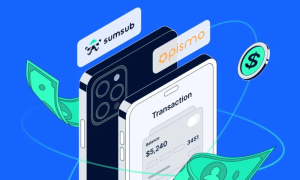Choosing the best credit cards for freelancers is crucial for managing business expenses effectively. Freelancers, often juggling multiple tasks, need a reliable financial tool to streamline transactions. These credit cards can offer invaluable perks like cashback, rewards, and business-specific benefits. Understanding what to look for can make a significant difference in your financial management and overall success as a freelancer.
In an ever-evolving gig economy, freelancers must remain agile and resourceful with their financial decisions. Selecting the right credit card is more than just finding one with low interest rates; it encompasses finding one that aligns with your business needs. From earning rewards to improving cash flow, the right choice can elevate your freelancing business to new heights. Let’s delve deeper into the essential features to consider.
Understanding the essentials of credit cards for freelancers

Credit cards for freelancers serve different purposes compared to personal cards. They cater to the unique requirements of self-employed individuals, offering tailored benefits and features. When comparing options, it’s vital to focus on credit limit flexibility, cash back opportunities, and APR rates suitable for business expenses.
Being a freelancer means unpredictable income, which affects how one manages expenditures and cash flow. Credit cards designed for freelancers often provide flexible payment options and rewards that align with business expenses. By picking a card with these features, a freelancer can alleviate financial stress and focus on growing their business.
Flexible credit limits tailored for freelancers
One of the primary features freelancers should seek is a flexible credit limit that adjusts to income variability. Credit cards that offer adjustable limits can be beneficial, accommodating lean months and abundant periods without stress. This adaptability ensures that unexpected expenses don’t derail business operations.
Such flexibility is especially advantageous during startup phases or expansion, when cash flow might be tight. Credit cards that provide scalable credit limits ensure freelancers have the purchasing power they need while avoiding excess debt. This feature acts as a financial cushion, offering peace of mind when navigating fluctuating income.
Maximizing cash back and rewards
Cash back and rewards schemes are vital components of credit cards for freelancers. These programs reward users for regular spending on essentials like office supplies and software subscriptions. Picking a card with a robust reward system can significantly reduce overall business expenses over time.
These rewards not only aid in cutting costs but also encourage more responsible spending. By reconciling monthly expenditures with earned rewards, freelancers can budget more effectively. Many cards offer tiered reward programs, allowing freelancers to maximize returns based on specific spending categories.
Evaluating interest rates and fees
Interest rates play a critical role when selecting credit cards for freelancers. High interest rates can quickly negate any rewards earned, making it imperative to scrutinize these fees. Choosing a card with favorable APR terms can save significant amounts annually, especially when carrying a balance.
Freelancers should also consider annual fees and transaction charges when evaluating credit cards. While some cards may offer lucrative rewards, high hidden fees can offset the benefits. Carefully reviewing the fee structure will ensure you choose a card that complements your individual financial circumstances.
The impact of introductory offers
Many credit cards come with enticing introductory offers such as 0% APR for a certain period. These offers can be specifically beneficial for freelancers planning more significant investments or dealing with substantial initial expenses. Understanding these offers and their duration can aid in making informed decisions.
Leveraging these introductory rates during strategic periods of your business can lead to cost-effective financial management. However, it’s crucial to note when these periods end to avoid sudden interest hikes. Proper planning ensures these offers contribute positively to your business growth.
Comparing ongoing benefits and perks
Beyond initial offers, the ongoing benefits of a credit card should hold significant weight in a freelancer’s decision-making process. Look for cards that provide ongoing perks such as travel insurance, purchase protection, and discounts on business services. These can create substantial value for day-to-day operations.
Offering more than just basic financial support, these benefits ensure security and added peace of mind. Additionally, some cards provide free access to accounting tools or business consulting services, further aiding freelancers in managing their businesses efficiently. Selecting a card with continuous perks enhances operational efficiency.
In conclusion, evaluating credit cards for freelancers requires a comprehensive approach. By focusing on flexible limits, cash-back systems, low-interest rates, and meaningful perks, you can identify a card that serves your unique needs. With the right financial strategy, your freelancing journey can be smoother and more rewarding.





